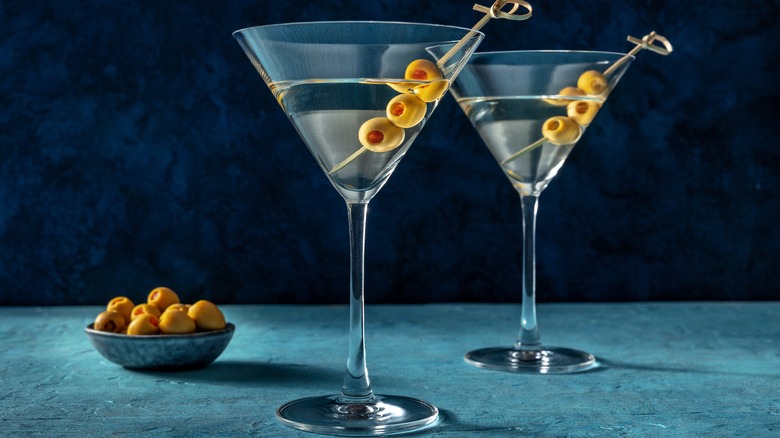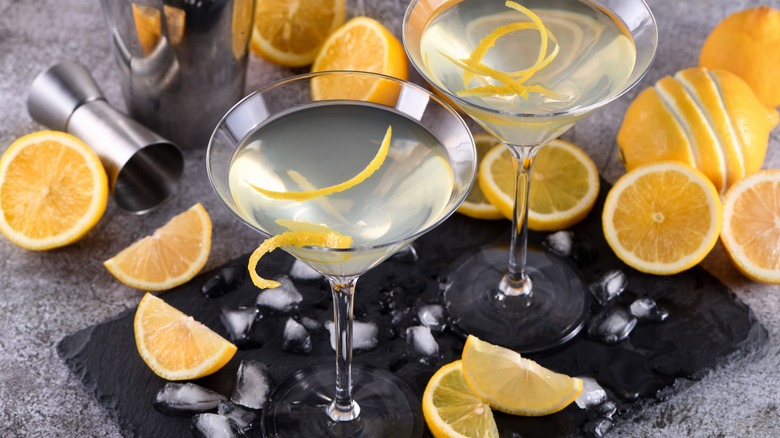Why A Martini Isn't Complete Without Its Garnish
The martini is a classic cocktail made with either gin or vodka and a little vermouth, according to Pour Bar Services. The alcohol experts go on to explain these adult beverages can be further classified as dry, perfect, or wet — based on the type and ration of vermouth used. But whether you are a fan of the shaken-not-stirred variety made popular by James Bond 007, or prefer the dirty version with all that briny olive juice that Franklin Delano Roosevelt made popular (per Wine Enthusiast), the martini is one of those drinks that is known for its iconic presentation.
In fact, when it comes to these sophisticated cocktails, Imbibe Magazine says martinis are all about the garnishes. Alex Day, a co-author of "Cocktail Codex," explained to the publication the psyche of a martini drinker. Day said, "Who orders just a Martini? No one. They order a Martini with gin, light on the vermouth and with an olive, or a Martini with vodka, then please gesture quizzically in the direction of France in place of the vermouth, and add a twist of lemon — every Martini drinker has their own preference!" But why is the garnish for this drink such an essential part of the martini experience?
It is part of the sensory immersion
According to Cocktails and Bars, the martini garnish can add to the whole sensory encounter when you order the cocktail. The site goes on to explain that a garnish can contribute to the smell, taste, and anticipation of sipping on this drink, and there are a lot of garnishes to choose from to adorn your martini. Olives, lemon, grapefruit, orange twists, pickled onions, seaweed, or even a single whole-stemmed caperberry can be used to spruce up your martini while adding to its taste.
For a martini newbie, the garnishes can be overwhelming, but they shouldn't be. It may even leave one wondering how much a garnish can really change the flavor of a drink. According to Alex Day, it might be faint, but it can be distinctive. Day told Imbibe Magazine, "It takes a little time to really see the layered dimensions of how a twist is so different from an olive—but isn't that what a Martini is? Nuanced, subtle. To me, the choice of garnish is as much a part of the Martini's recipe as is the choice of gin or vodka and the presence (or absence) of vermouth."

